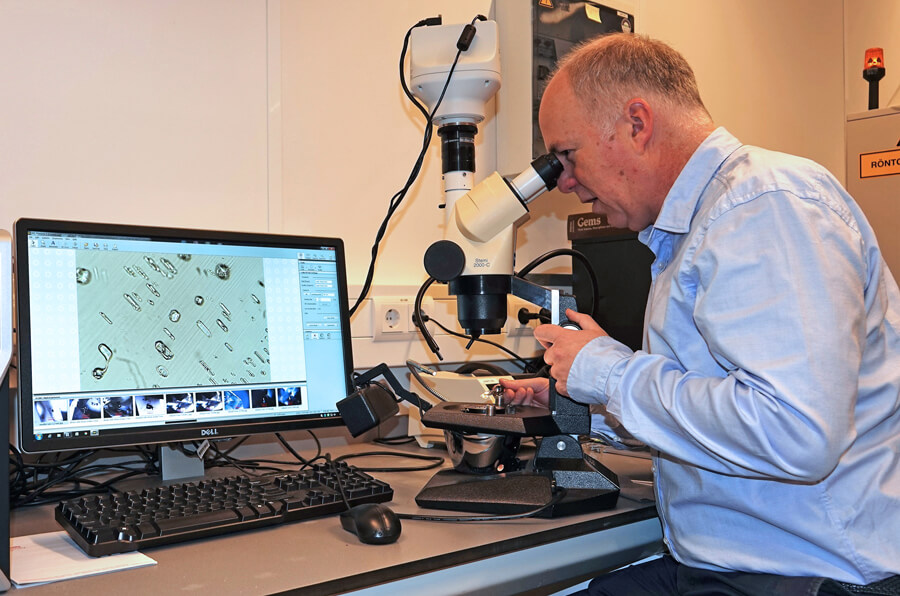A door to the digital transformation
DiSSCo’s Community Services
DiSSCo will create a unique access point for integrated data analysis and interpretation through a wide array of digital services provided by its community. The services aim to serve real life needs and therefore are based on the priorities set by collection providers and a robust base of user stories.
What are we trying to achieve?
- Support and improve both physical and digital access to European Natural Scientific Collections (NSCs)
- Enable and support industrial scale digitisation of the collections
- Provide enhanced interpretation, curation, annotation and use of specimen data by novel, machine-actionable mechanisms
DiSSCo’s services will bring about change
DiSSCo’s services will help NSCs providers become an integral part of the European and Global scientific community, making them better equipped for changing user needs and new scientific usage of collections.
For researchers, the services mean improved efficiency to become more responsive to urgent needs. DiSSCo’s services will also accelerate biodiversity discovery, improve visibility in their contributions and reduce the global carbon footprint derived from trips and shipments of specimens.
DiSSCo’s services will bring about change in the way technology, processes and people interact. They open the door for a true digital transformation of Natural Science Collections.
ELViS: one-stop shop for access to NSCs
European Loans and Visits System
Description
ELViS is a one-stop shop for access to the collections in Europe. It provides a unified way to request visits, loans and virtual access. Virtual access requests through ELViS provide digitisation on demand as a new type of access, including support for collaborating on VA ideas and proposal submission.
Version information
Version information
Version 1 developed in the SYNTHESYS+ project Released in March 2021 with support for Transnational Access (TA) and Virtual Access (VA, digitisation on demand) requests. Version 2 under development with support from the DiSSCo Transition project, to support individual loans and visits
TRL status
6. Working prototype
Due to technical issues, ELViS will be unavailable for a few days.
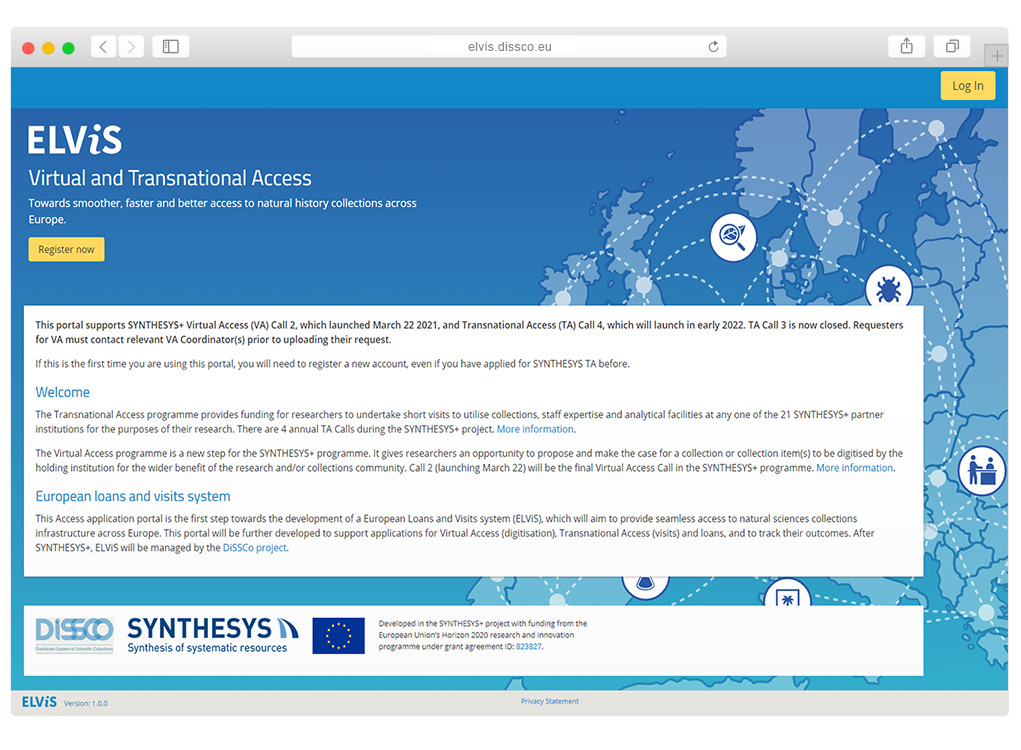
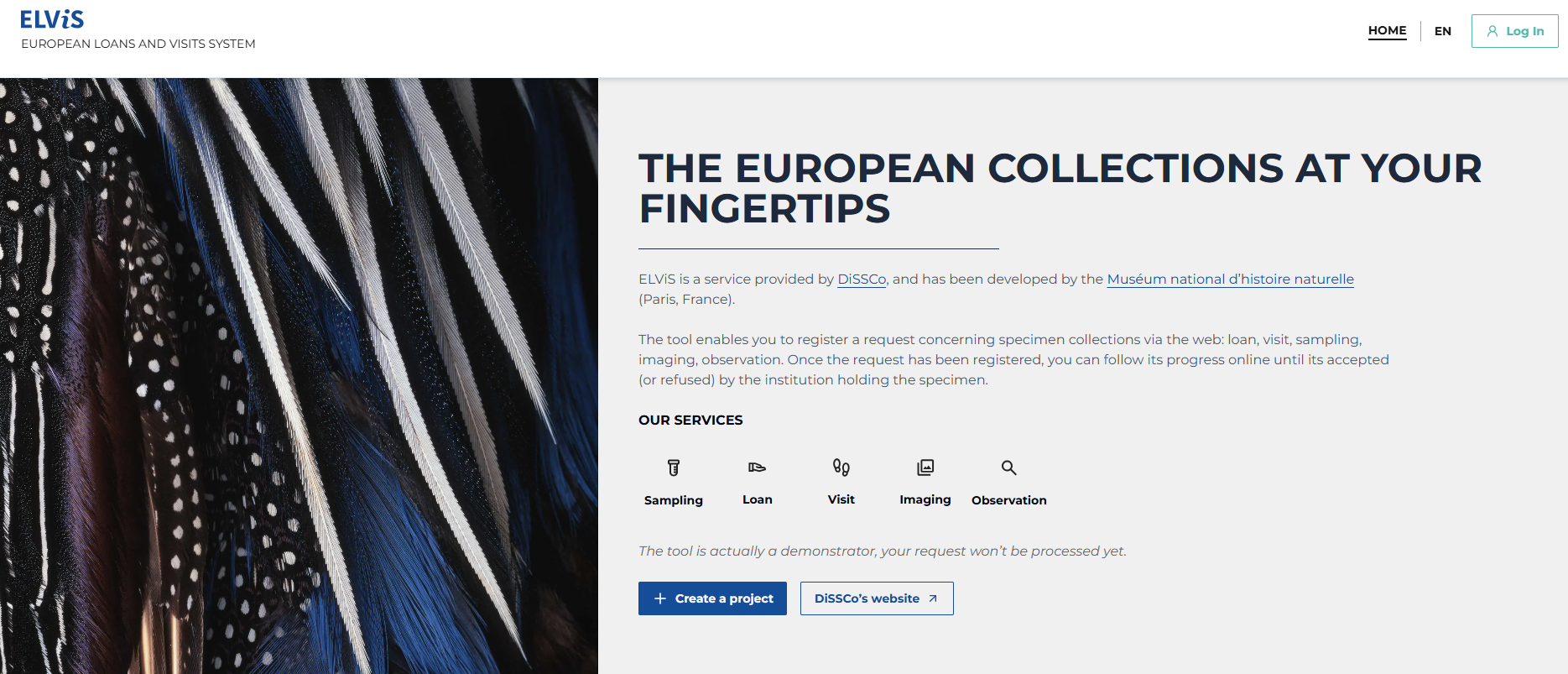
Hosted by Naturalis Biodiversity Center and Picturae
Other services
Services that include digitisation dashboards, tools for digital maturity self-assessment and mechanisms for policy compliance.
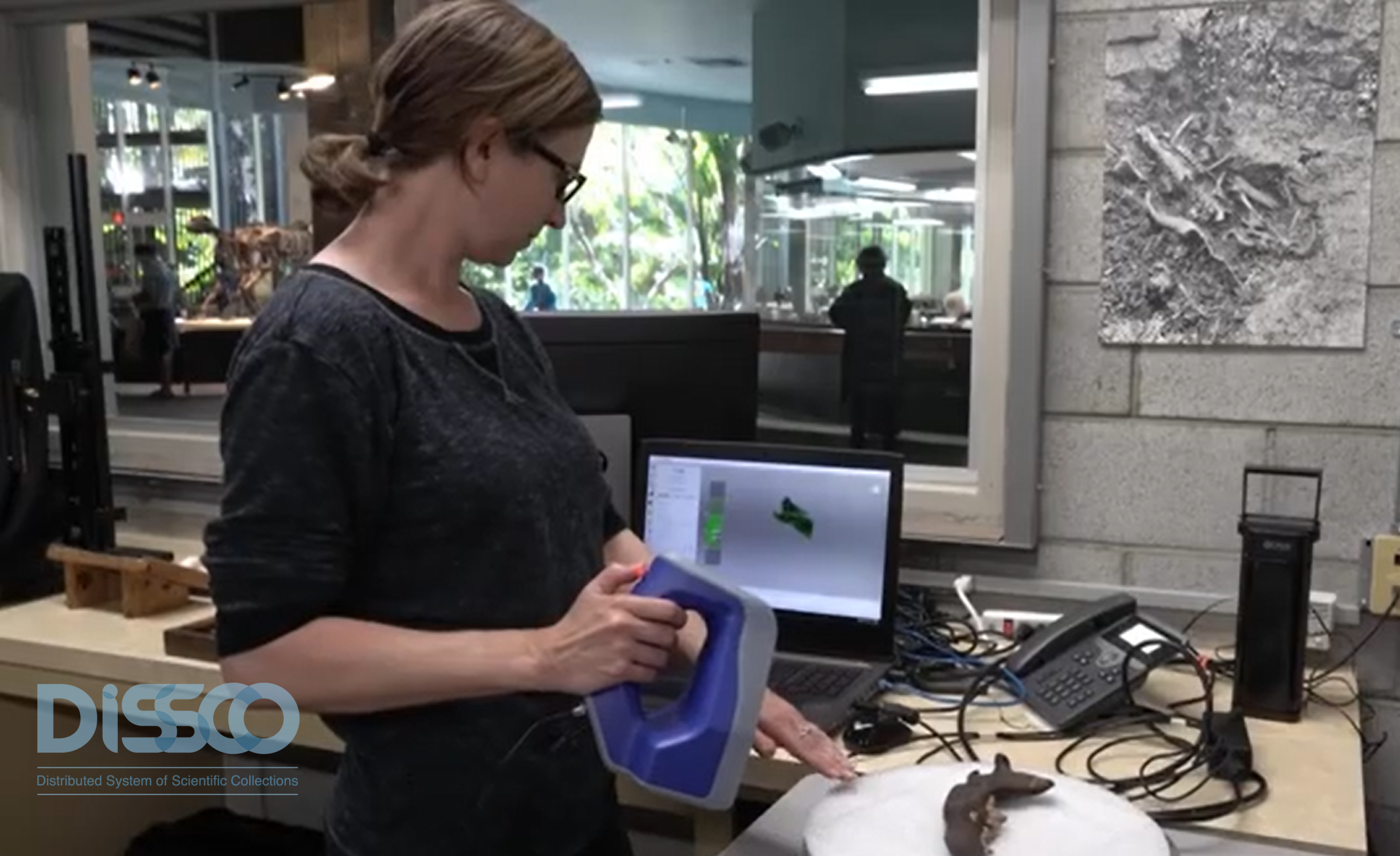
CDD: Visualizing collections across institutions
Collection Digitisation Dashboard
Description
The interactive dashboard visually summarises the digitisation status, content and strengths of collections across the community of institutions through a number of visual elements. It displays progress in digitisation and provides summaries and comparisons regarding the number of objects, taxonomic scope, categories of preservation, stratigraphic age, geospatial range, level of digitisation and digital content availability for reuse.
Version information
Version l developed in the SVNTH ESVS+ project. Released in March 2021 with support for Transnational Access (TA) and Virtual Access (VA, digitisation on demand) requests.
TRL status
6. Working prototypes.
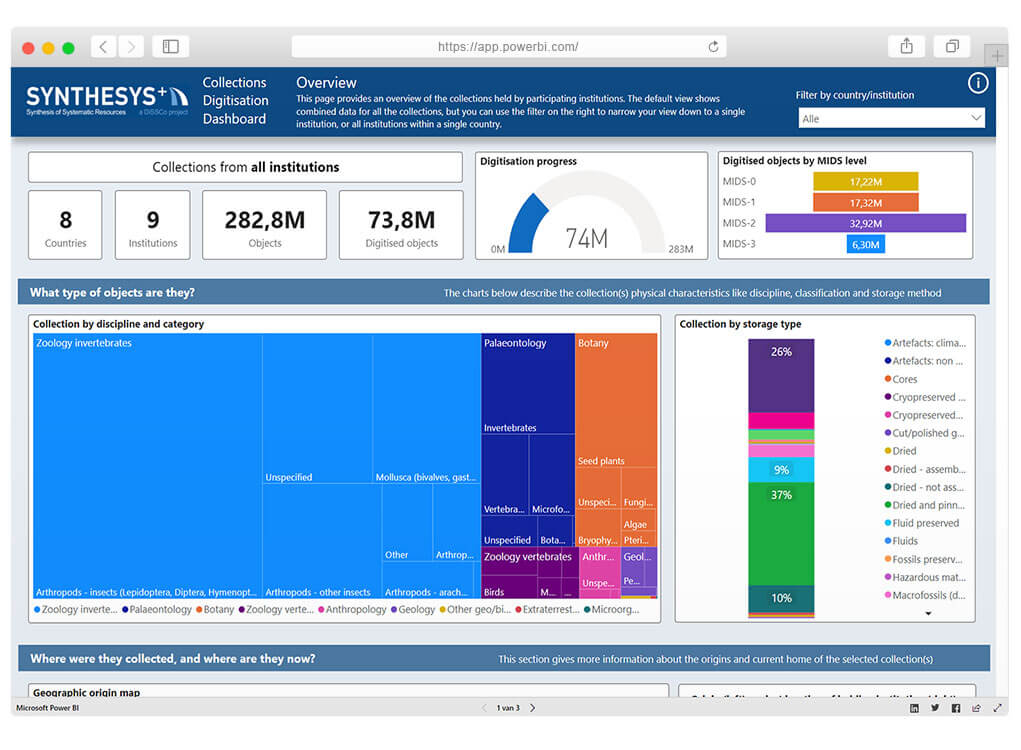

Hosted by Natural History Museum, London
DiSSCover: Community annotation for science
DiSSCover (Unified Curation and Annotation System)
Description
DiSSCover (formerly UCAS) will provide event-based curation and annotation functions on the Digital Specimen for experts in the community and for machines. Transac- tions on the data will be stored as well as provenance information related to the curation or annotation events.
Version information
Minimum Viable Product available since December 2024. Contains the basic functionalities to explore the DiSSCo digital objects catalog, make annotations, and use Machine Annotation Services.
TRL status
. Minimum viable product (MVP) in production.
Hosted by DiSSCo
Click on the image to enlarge
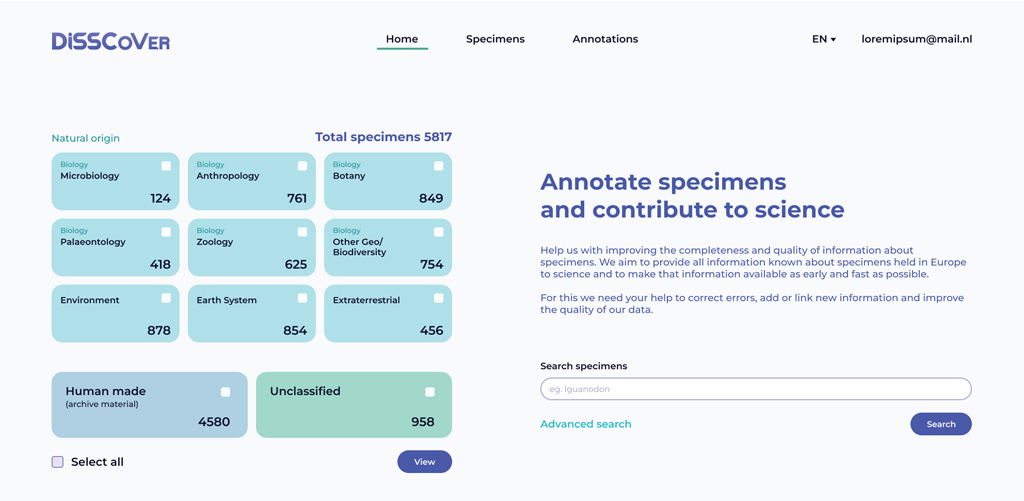
Experimentation with FDOs
Digital Specimen Repository
Description
The APls developped by DiSSCo grant acess to the Digital Specimen Repository. The DSR is a data repository for Digital Specimen and other DiSSCo-related FAIR Digital Objects (FDOs).
Version information
Having developed a demonstrator during the ICEDIG project to test the Digital Specimen concept, the service is now ready as a minimum viable product (MVP).
TRL status
8. Ready as MVP.
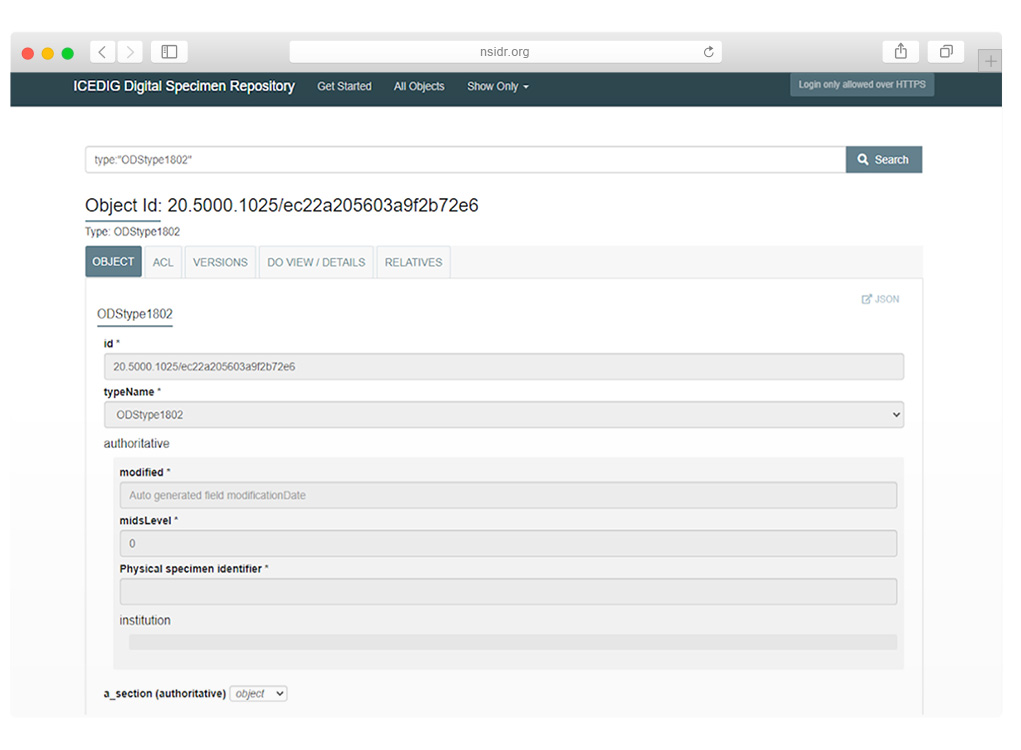
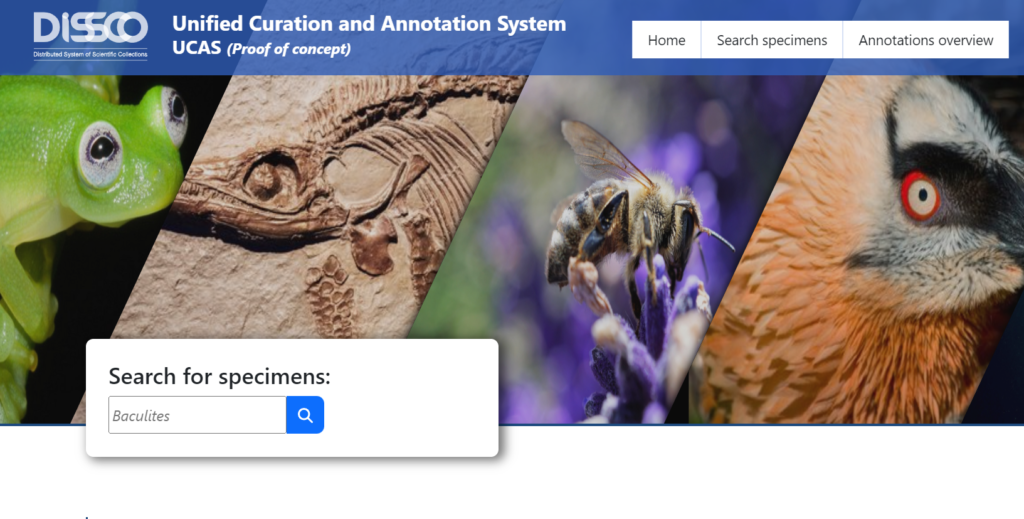
Hosted by Naturalis Biodiversity Center and Senckenberg.
Turning data into Digital Specimens
DiSSCo Orchestration Service
Description
The orchestration service allows DiSSCo to register institutional source systems from which data can automatically be ingested and transformed into openDS-compliant Digital Specimens.
It also allows registration of Machine Annotation services.
Version information
Minimum viable product (MVP) in production.
TRL status
8. MVP

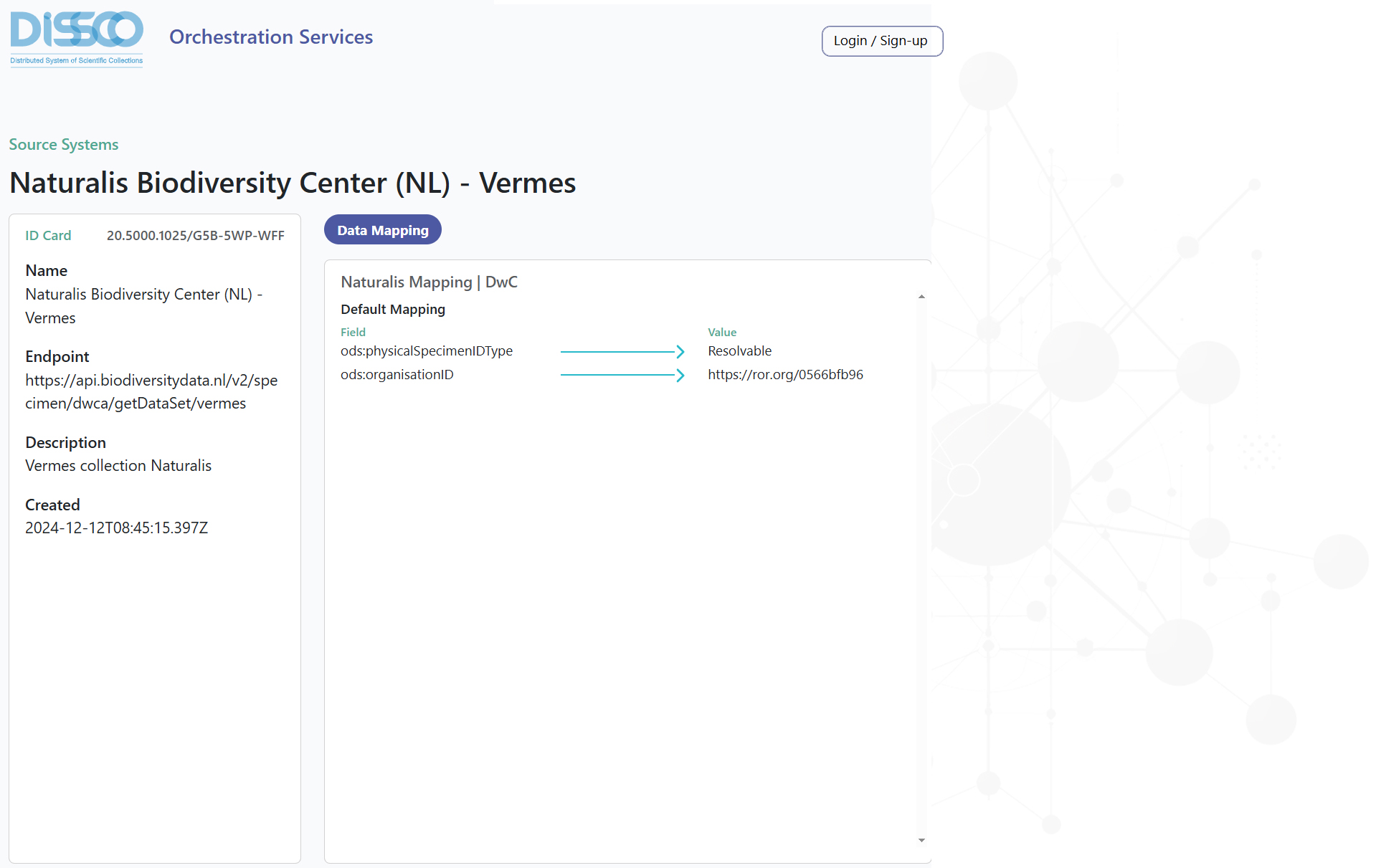
Hosted by Naturalis Biodiversity Center
Enhancing FAIR aspects of biodiversity data
Open DS Specification
Description
The openDS serves as a comprehensive data specification, unifying diverse scientific information derived from both biological and geological specimens. Born out of the need for a structured description that integrates effortlessly into various workflows, openDS is designed to enhance the Findable, Accessible, Interoperable, and Reusable (FAIR) aspects of collections derived data.
Version information
The open DS data model consists of a documented set of JSON schemas that describe the Digital Specimen and related digital objects. The documentation can be found here:
https://terms.d issco.tech/ and
https://schemas.dissco.tech/schemas/
TRL status
8. MVP

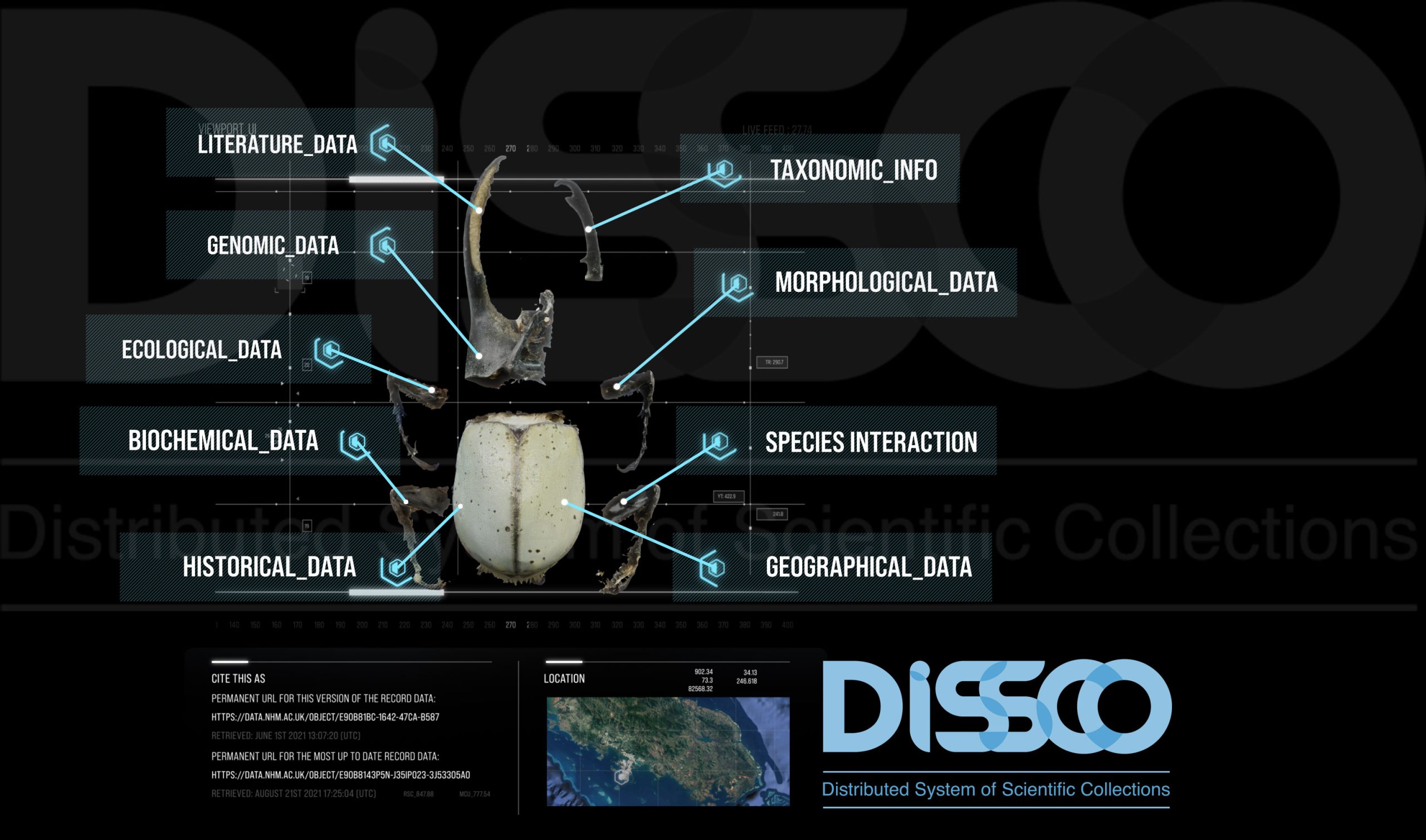
Hosted by Naturalis Biodiversity Center
DSARch, MAS, DOI Tooltip
Developer documentation
Description
Digital Specimen Architecture (DSArch) documentation
Machine Annotation Services (MAS) Developer documentation
Digital Object Identifier (DOI) Tooltip documentation
Sources
DSArch documentation:
https://dissco.tech/documentation/
MAS documentation:
https://github.com/DiSSCo/dissco-developers-documentation/wiki/Information-for-Machine-AnnotationService-(MAS)-Developers
DOI Tooltip documentation:
https://disscover.dissco.eu/demo


Digitising natural science collections
Digitisation Guides
Description
The Digitisation Guides workflow collection has step-by-step instructions on how to digitise herbarium sheets, pinned insects, microscope slides and geological thin sections.
Version information
Working service. All institutions are able to contribute to this website, see our contributor guidance for more information on how to submit a workflow.
TRL status
8. Ready to use

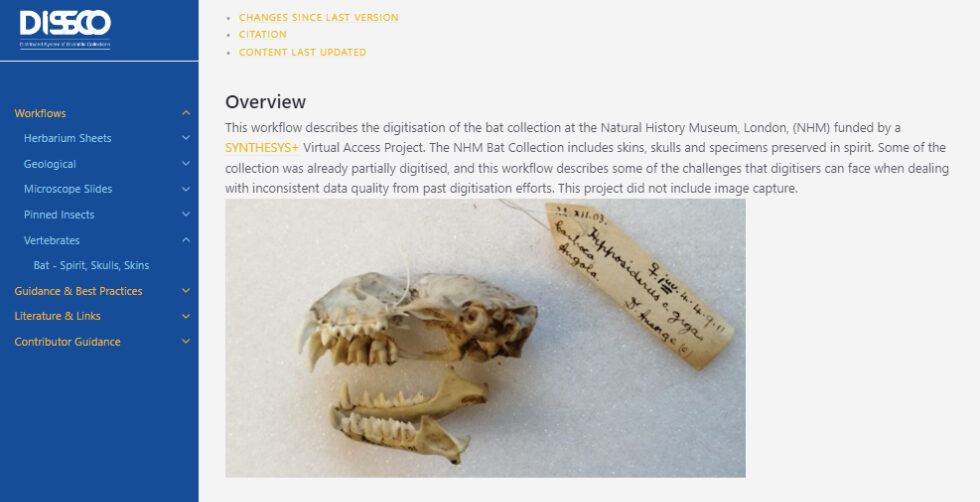
Hosted by Natural History Museum, London
Support and Open Science-related services
Including DiSSCo’s Knowledge Base and Helpdesk.
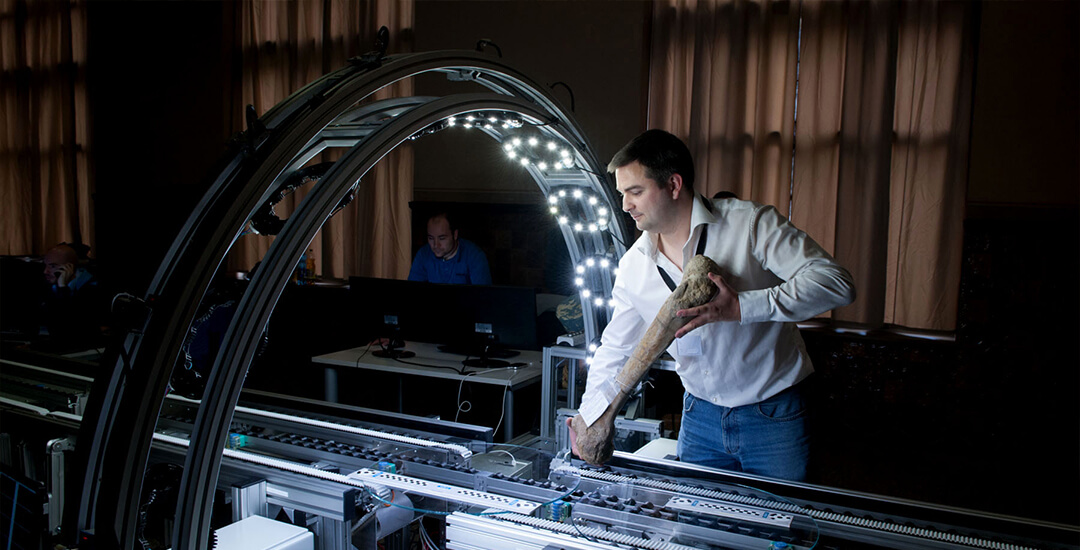
DiSSCo’s commitment to Open Science
Knowledge Base
Description
The Knowledge Base provides a central search and browse interface to find all documentation related to DiSSCo. These include research outputs created in DiSSCo linked projects (DiSSCo Prepare, ICEDIG, ENVRI-FAIR. MOBILISE, SYNTHESYS +, and DiSSCo Transition) but also other contents: training materials, Frequently Asked Questions (FAQs), best practices, guidelines, recommendations, technical documentation and documented decisions.
Version information
Prototype created in DSpace 6 as beta, a more complete implementation in DSpace 7 offers improved integration with e.g. ORCID iDs.
TRL status
6. Working prototype
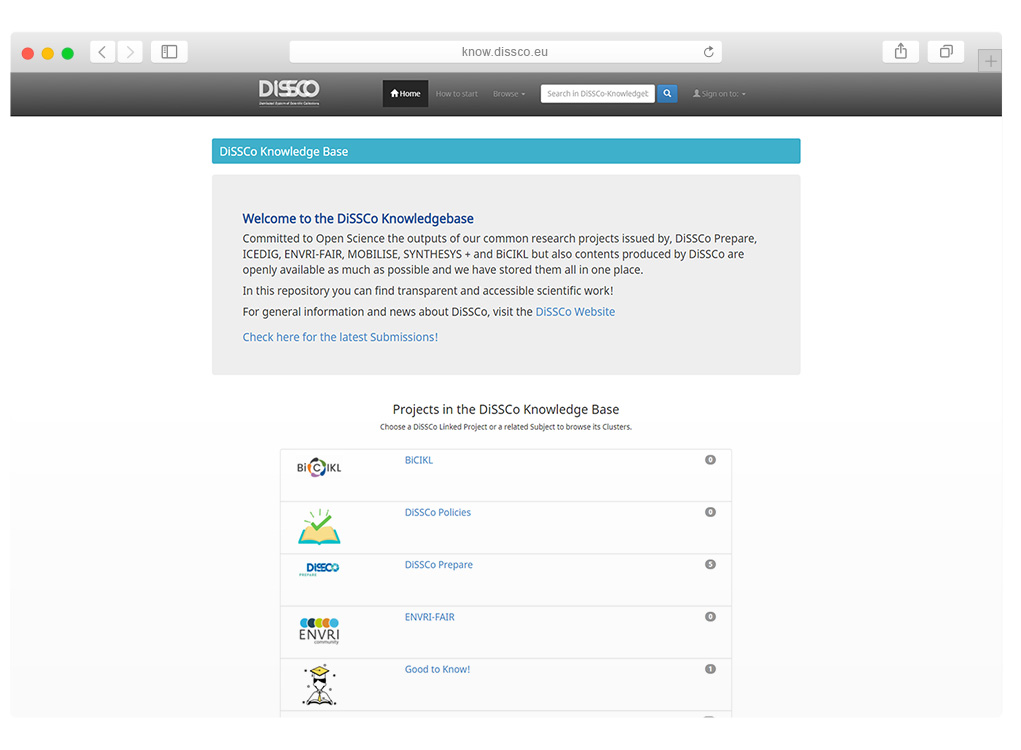

Hosted by Museum für Naturkunde, Berlin.
Information and support in one place
Helpdesk
Description
The DiSSCo Helpdesk will be a central place for all questions related to DiSSCo services or access programmes such as the virtual access and transnational access calls in ELViS. As such, it will be integrated with DiSSCo services. The Helpdesk’s first line support is done by CETAF secretariat while second line support goes to selected CETAF/DiSSCo institutions. Third line support goes to developers of services such as Picturae for ELViS. The Helpdesk is using JitBit software.
Version information
The system is used in production with ELViS since 2022.
TRL status
8. Ready to use on a limited scale
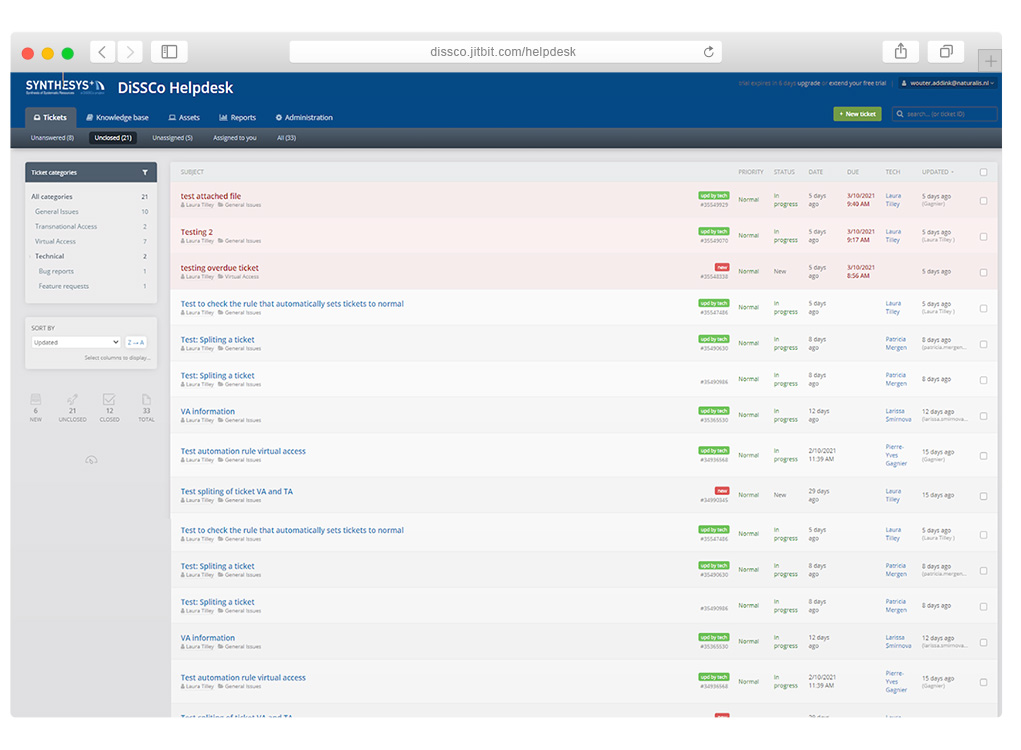

Hosted by CETAF, the Consortium of European Taxonomic Facilities and Naturalis Biodiversity Center, Leiden.
Policy conditions across institutions
DiSSCo Policy Dashboard
Description
Result of a survey and analysis carried out on six ICEDIG partners.
The survey data was integrated into a series of visualisations to demonstrate coverage of policies across institutions, policy completion status, and levels of confidentiality.
Version information
Prototype is available
TRL status
6. Verified prototype

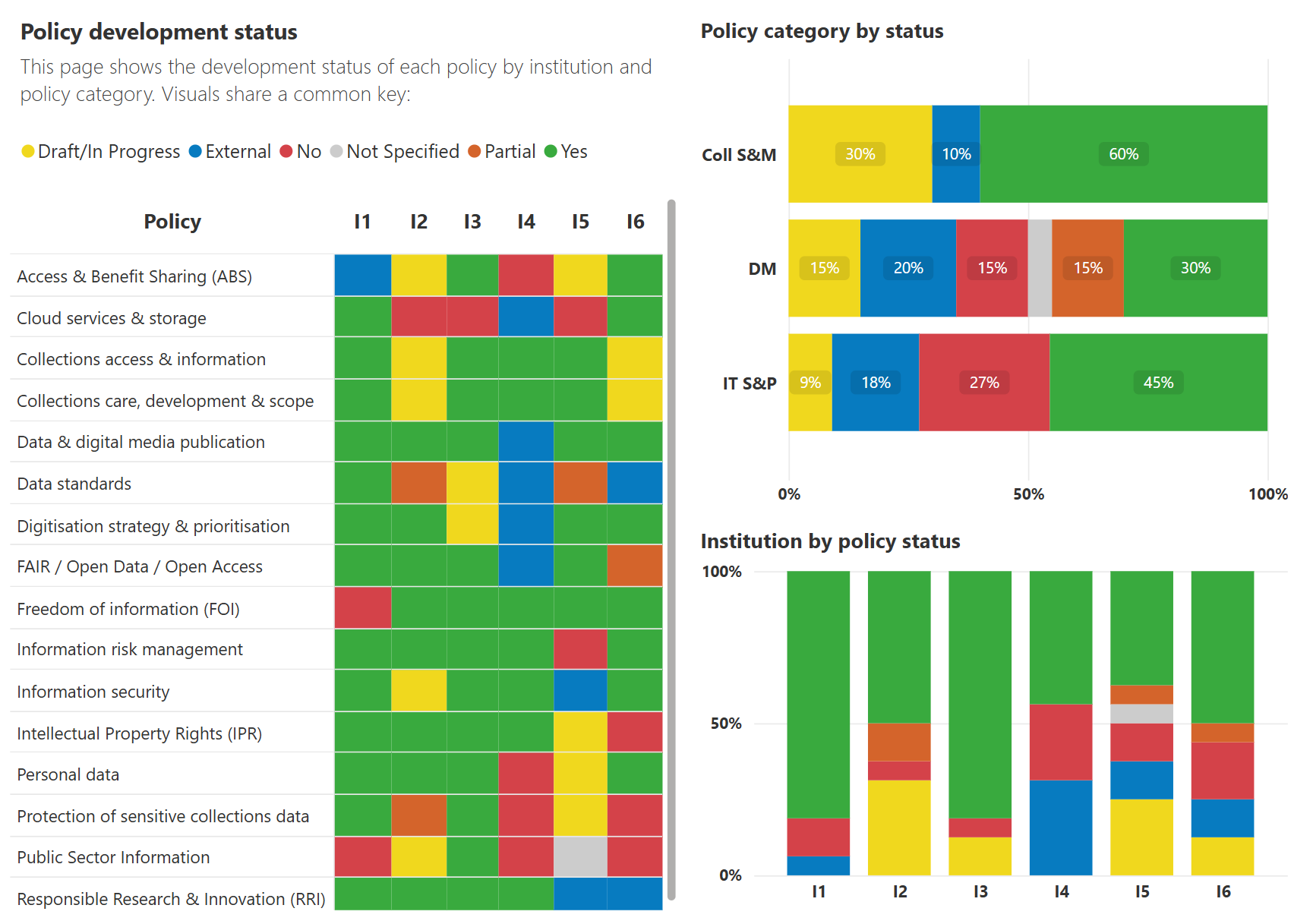
DiSSCo’s position in the RI landscape
Research Infrastructure Dashboard
Description
A milestone from ICEOIG.
The data visualised in this dashboard is representative sample of35 Research Infrastructures and platforms that bear some relation to DiSSCo.
Version information
Prototype is available
TRL status
6. Verified prototype

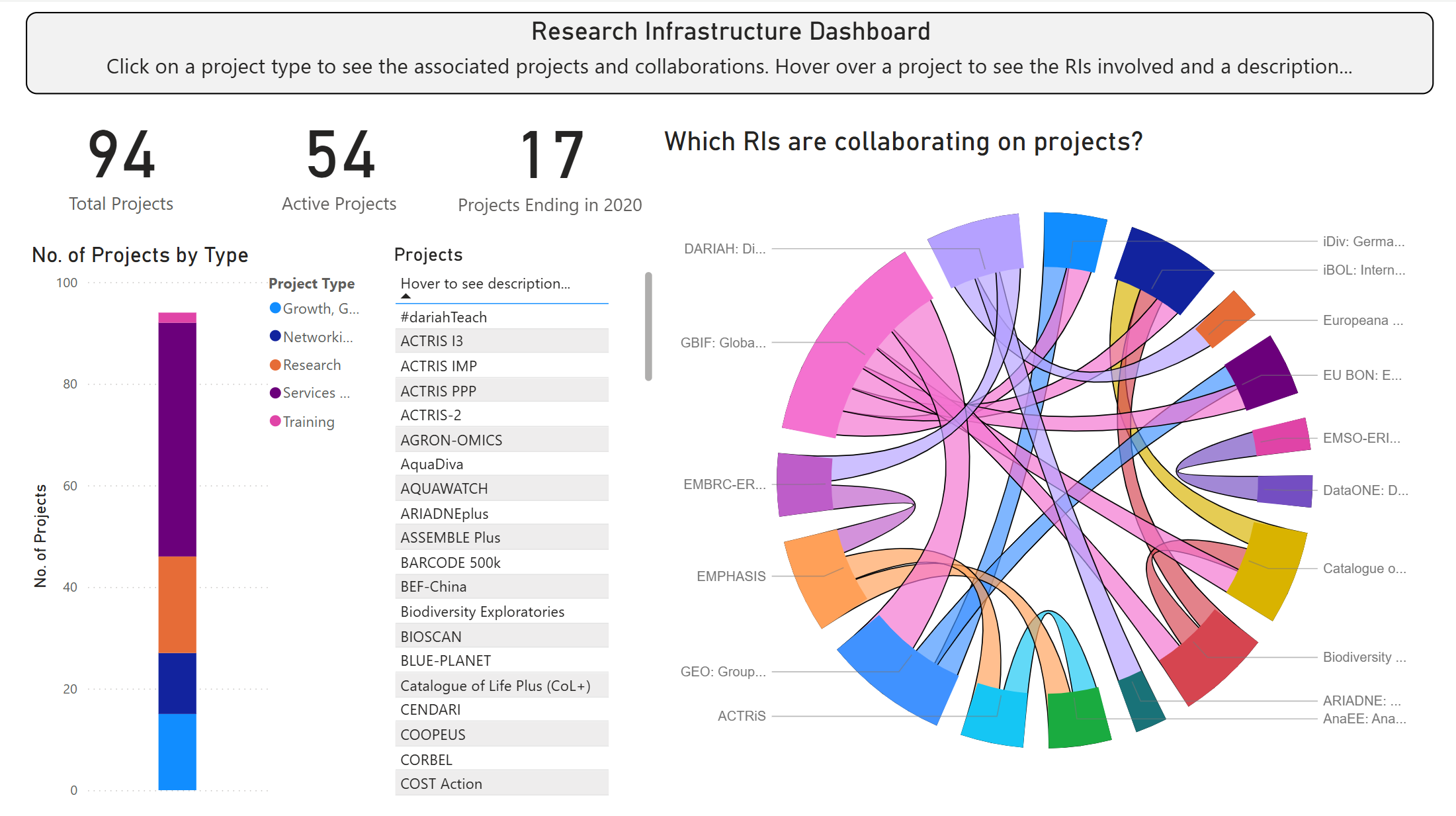
Collecting information from DiSSCo institutions
DiSSCo Collections Dashboard
Description
The Collections Dashboard contains data pertaining to the natural science collections of participating institutions across Europe. Page one shows the approximate size of collections per discipline for 89 institutes who participated in an initial DiSSCo survey, and page two displays the national contributions to the European collection.
Version information
Prototype is available
TRL status
6. Verified prototype

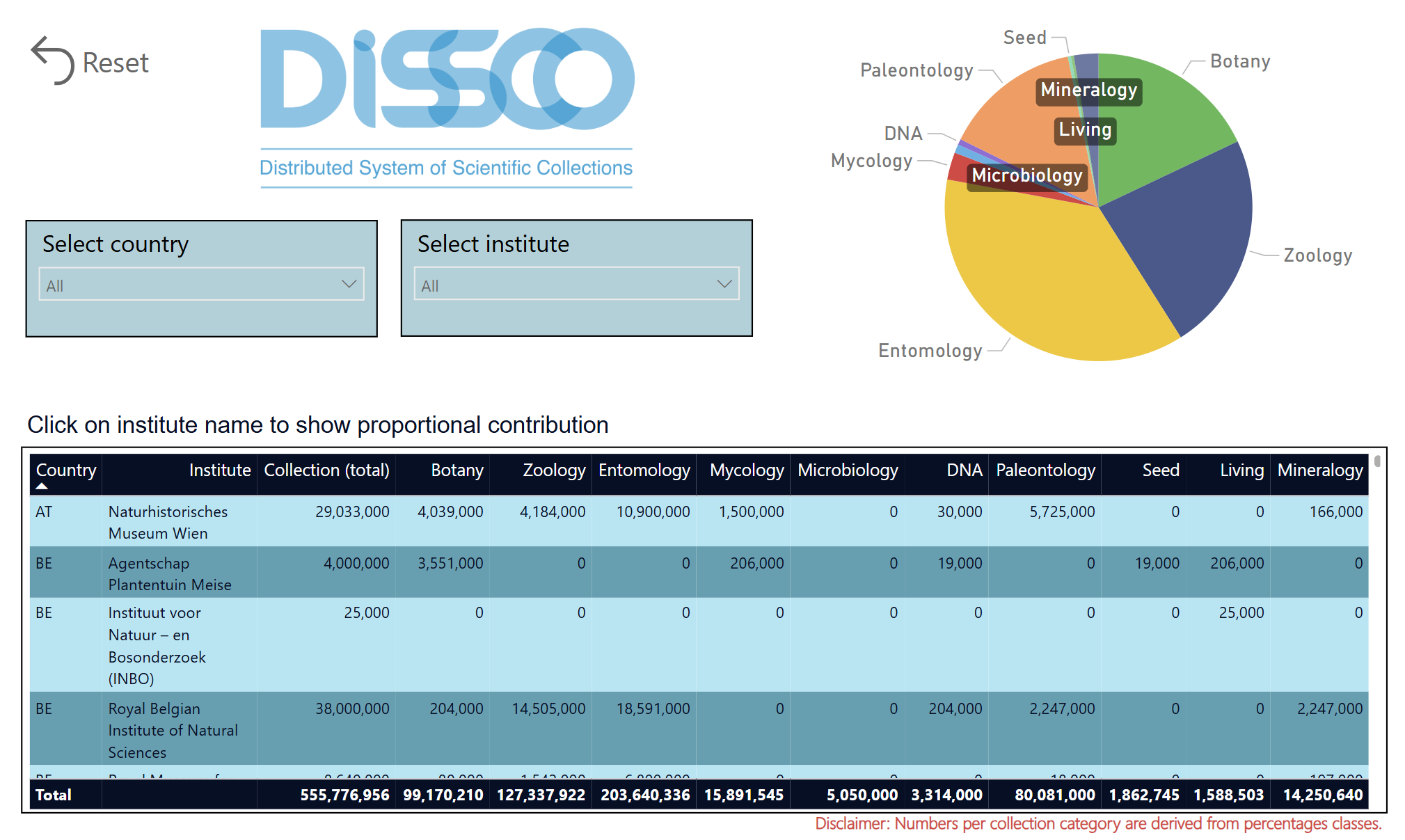
Institutional data to feed DiSSCo services and tools
Specialisation plan & CETAF registry
Description
Tooling provided to register institutional specialisation plans and publish the collected information through the CET AF registry.
The registry publishes data about institutions, including collections, research topics, expertise, training, facilities, etc.) which then can feed DiSSCo services and tools., thus improving the discoverability of European NSCs, and facilitate decision making for different stakeholders on a governmental, institutional and research level.
TRL status
6. Working prototype

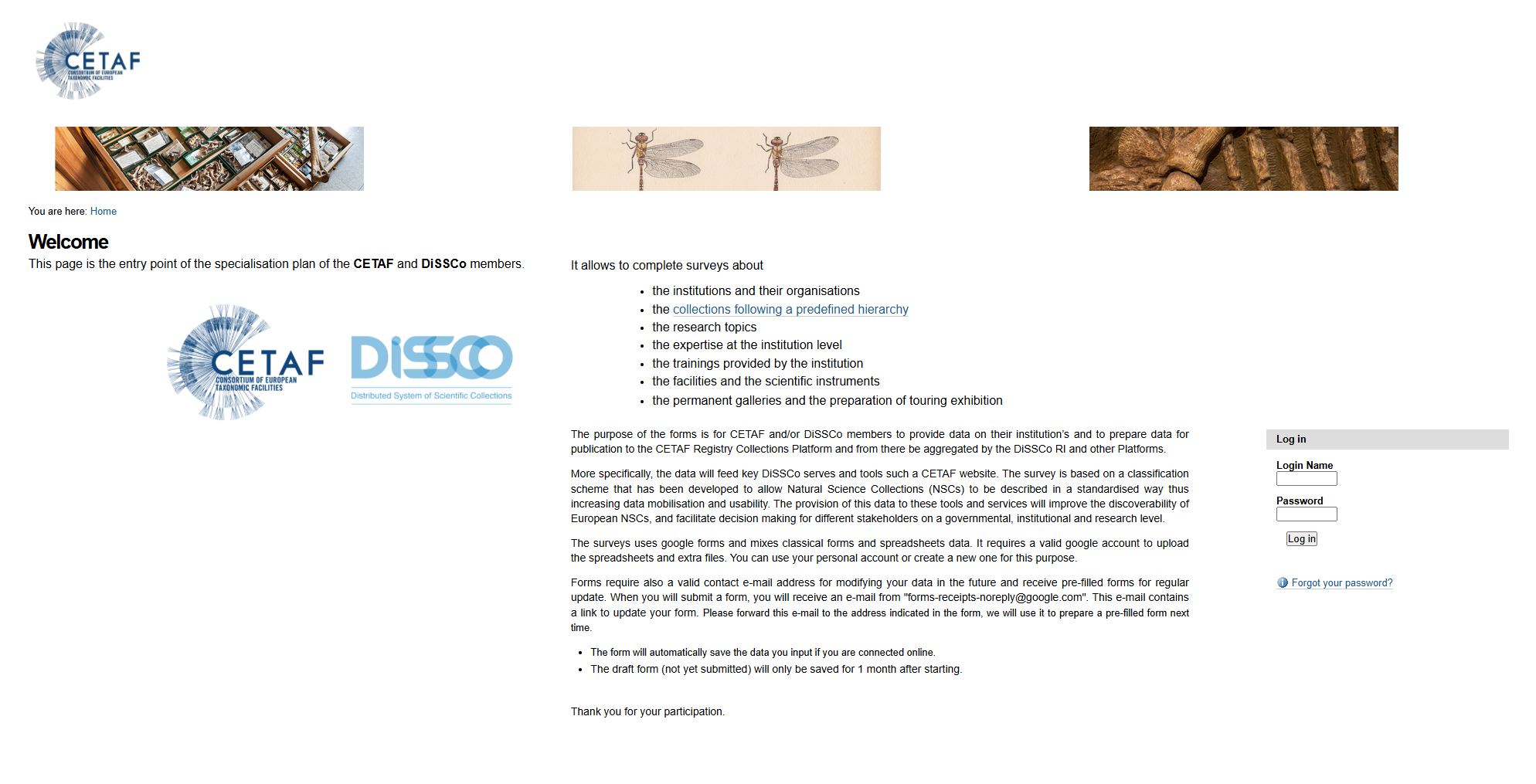
Non-digital content
Physical access to collections, training and more.
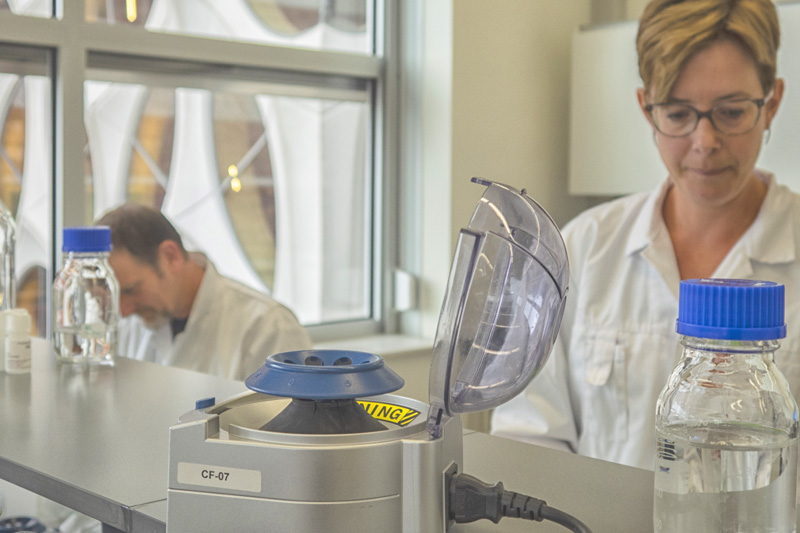
Facilitation of physical access to national collections and research facilities
Physical access to collections
Description
On-site visits to institutional facilities or preparation and management of specimen loans.


On-demand digitisation of natural science collections or on-demand execution of laboratory or field work or taxonomic identification
Data (on-demand) & Knowledge services
Description
Provision of collection-derived data to DiSSCo, Project-based digitisation of collections and provision of extracted data.


Educational programs and resources that enhance the skills and knowledge of users
Training and Capacity Building
Description
Workshops, online courses, development of training material.


Activities that promote awareness and utilisation of DiSSCo resources
Engagement / Communication and Dissemination
DescriptionOutreach programs. conferences. thematic workshops.


DiSSCo offers different technical knowledge platforms at the scientific community’s disposal:
Get the latest technical posts about the design of DiSSCo’s Infrastructure
Code hosting for DiSSCo software, version control and collaboration
